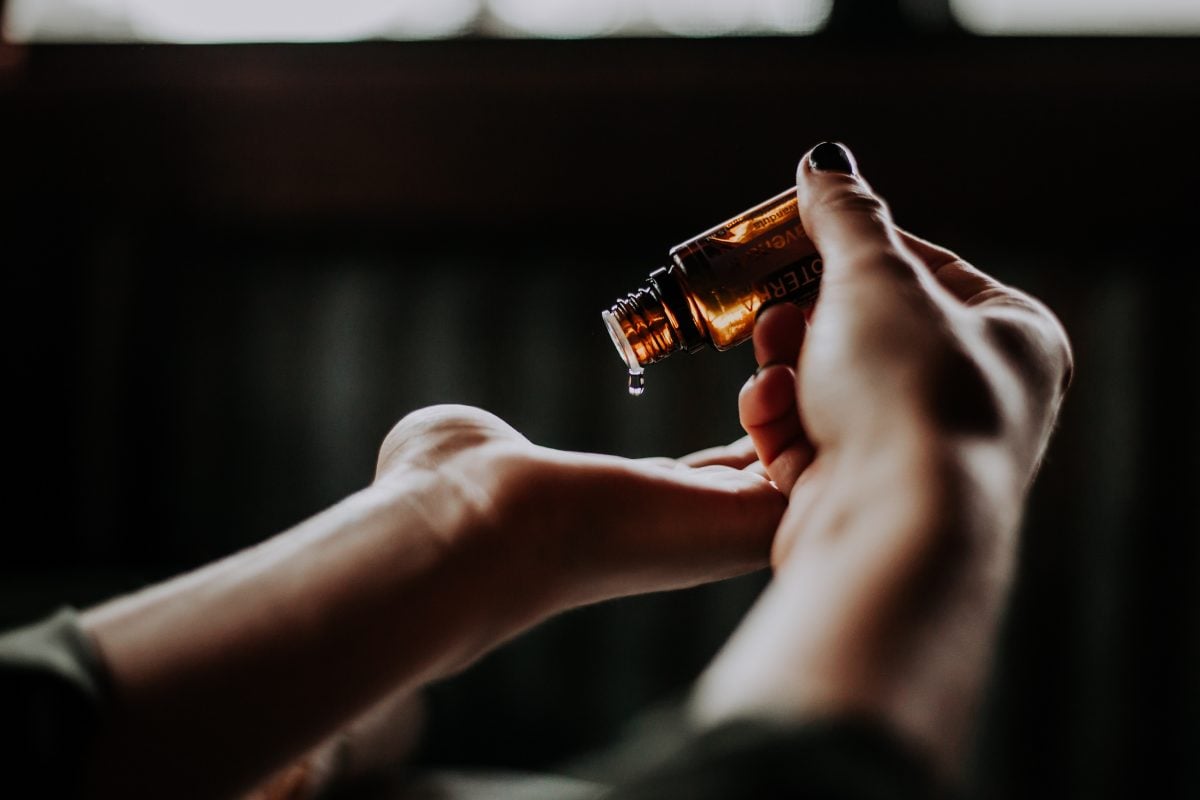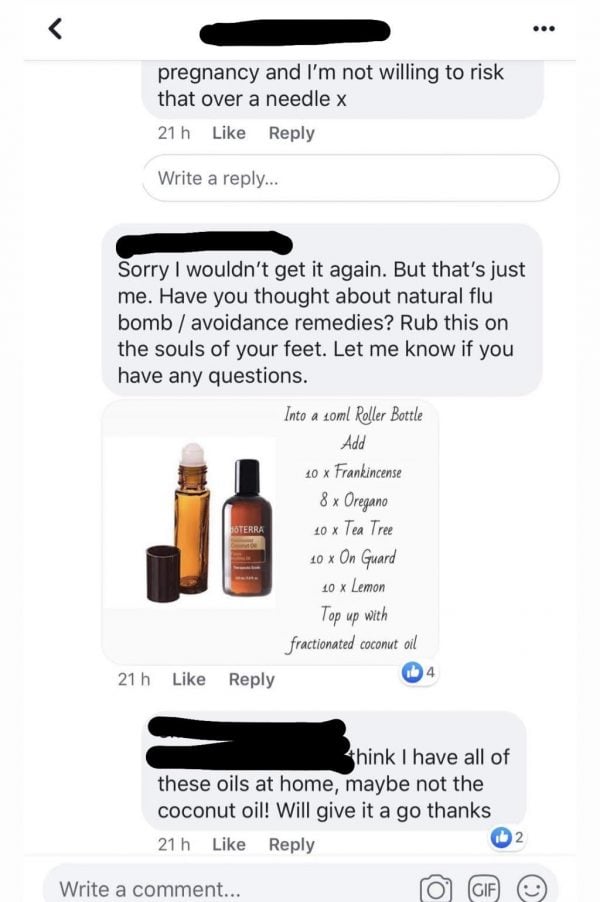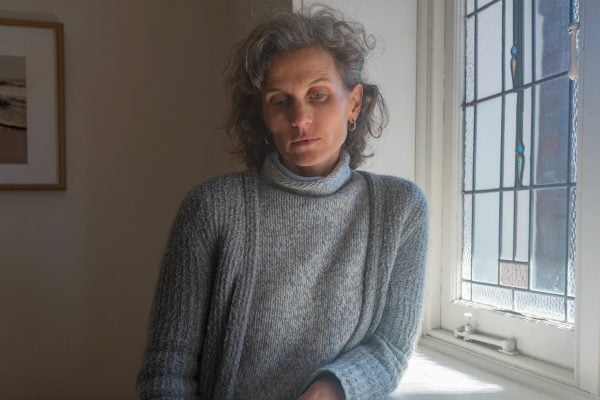
Geranium is one of my favourite scents.
The rose-like smell fills my apartment, encouraging a homely feel and making me happy.
Indeed essential oils, in general, are great. They are a wonderful ritual used to aid relaxation, alleviate stress and promote self care. They have been used for centuries to help with tension and headaches and improve mood and sleep.
I do not, however, use geranium to treat my endometriosis.
Though when I spoke on Instagram about having the disease I was told by several people that essential oils could help ‘cure’ me. I was also promised essential oils would ‘fix’ the infertility I was experiencing (caused by said endo, low egg quality, natural killer cells and a bicornuate uterus).
The same well-meaning people offered unsolicited medical advice by way of essential oils when I spoke on Mia Freedman’s podcast about my father’s lung cancer, and again a few weeks back when I posted about him being diagnosed with several brain tumours.
And I need to emphasise here that these people are well meaning. I don’t believe anyone would knowingly and purposely ill advise, well, the ill.
Yet some (of course not all) essential oil distributors with absolutely no medical qualifications whatsoever are out there making very real, very false claims as to what the potions they pedal are capable of.
Sweeping claims in relation to illness and disease are declared as fact, often ‘backed up’ by decades-old studies that could, perhaps, maybe, possibly support said claims, but for the most part these studies are inconclusive and clearly declared so in the literature. Still, these official-looking findings are enough for these people to firstly believe, and secondly, to push product onto those around them who are in a vulnerable state.































































































